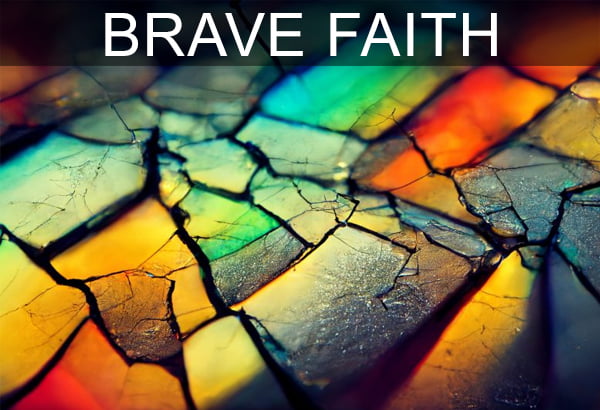Forgiveness Without God

Forgiveness is the heart of God.
When Adam and Eve sinned, they were told they were going to die. But they didn’t. They had to leave the Garden of Eden, they had to suffer the pains of this earth, but they lived to a very old age.
When Cain murders his brother Abel he is told he is going to die. In a mark of mercy and grace, God puts a mark on Cain so that no one will kill him. He lived to a very old age, had children, has a lineage.
In the Gospel stories, Jesus overflows with forgiveness first, then healing.
On the cross, Jesus is in between two guilty criminals. One asks for forgiveness and it is granted at this last minute.
On the cross one of the last things Jesus said was a plea that God forgive those who crucified him.
After the resurrection and before the ascension, in those short days Jesus intentionally forgives Peter and the other disciples.
This is my quick list from the Bible. Forgiveness is the heart of God.
We are living in a post-Christian culture. These are the three popular types of forgiveness now:
- Pressure to nonconditionally forgive: The victim forgives so that the greater good can move on. This is too often done under pressure from someone leading this greater good. You as the victim never get to grieve what was done to you because you are asked to fast forgive. (Read a good list as to why we fast forgive here.). You are probably also told this lie of “just forgive and forget.”
- Transactional forgiveness: The offender is run through a gauntlet until he/she is wounded sufficiently. You have the power to make this person earn forgiveness. This feels like justice. Exercising power over someone is not forgiveness. It is another skillfully hidden way to pay people back and get control over them. It is revenge masquerading as virtue.
- The righteousness to not forgive at all. Note the power here again. Forgiveness supposedly victimizes the victim again. By asking someone to forgive you are adding a new hurt to an already-hurting heart. Plus you might give the offender a way to control you. Forgiveness is supposedly a way abusive people maintain their power so you take away that power by not forgiving them.
Forgiveness is hard. This is why I call it a Bravester virtue. It is one of the bravest things you can do and leads to your braver life. There is lots to read about this here.
What feels off to you about these “new ways” of forgiveness in our post-Christian culture? Can you put your finger on it?
In all three of these models, God is done away with. No need to depend on a Savior who isn’t us.
They all contrast with costly grace which the Bible talks about.
In Tim Keller’s last book, Forgive: Why Should I and How Can I? (where I learned this), he broke these three models of forgiveness into this:
- Cheap grace = The nonconditional-forgiveness model: The emphasis is on the victim being therapeutically liberated from anger. Confrontation with the offender may be involved, but only if and to the degree it helps with the victim’s inner healing, which is the only concern. This focuses on “forgiving and forgetting” (which is a lie) but does end up letting the offender off the hook.
- Little grace = The transactional-forgiveness model: The emphasis is on the offender earning forgiveness. The victim gives up anger only if the offender earns it through extensive acts of repentance and reparation. Only when the offender has suffered enough will I maybe grant forgiveness.
- No grace = The no-forgiveness model: Forgiveness is abandoned completely in favor of the pursuit of justice for the victim. Which ends up being revenge which then leads to endless cycles of retaliation and vengeance, back and forth, between the victim and the wrongdoer.
Ask yourself this honest question. In your struggles with forgiveness, which lack of grace way are you choosing?
You are choosing this because it feels safer, protective, and you do feel a little bit of power when the betrayal has made you feel so powerless.
Forgiveness is the heart of God and it comes at a great cost. What happened on the cross changed everything.
We are asked to be dependent on this Savior who isn’t us so we can be set free of the destructiveness of sin that isn’t freedom but lies to us that it is.
Christ suffered for our sins once for all time. He never sinned, but he died for sinners to bring you safely home to God. He suffered physical death, but he was raised to life in the Spirit. 1 Peter 3:18
The message of the cross is foolish to those who are headed for destruction! But we who are being saved know it is the very power of God. 1 Corinthians 1:18.
Our savior-less religion, which I call the Religion of Enoughness, is exhausting and empty. When do you know if you are enough? Or have done enough?
What about a dependency on God who has done enough because God loves?
The sign that you have been forgiven is a heightened capacity for love, for grace giving, for forgiving others and an entirely more peaceable life. The more we understand the core of who God is–who is love and justice which means forgiveness–we become more like Jesus which makes the decision of forgiveness more possible.
Forgiveness is God’s gift to human hearts that are prone to turn hurt into hate.
Another honest question to ask yourself. Does the removal of God in forgiveness and justice (God has been removed from justice too) have anything to do with our divided, angry, dehumanizing current culture?
We need a Savior who isn’t us. This is not working.





